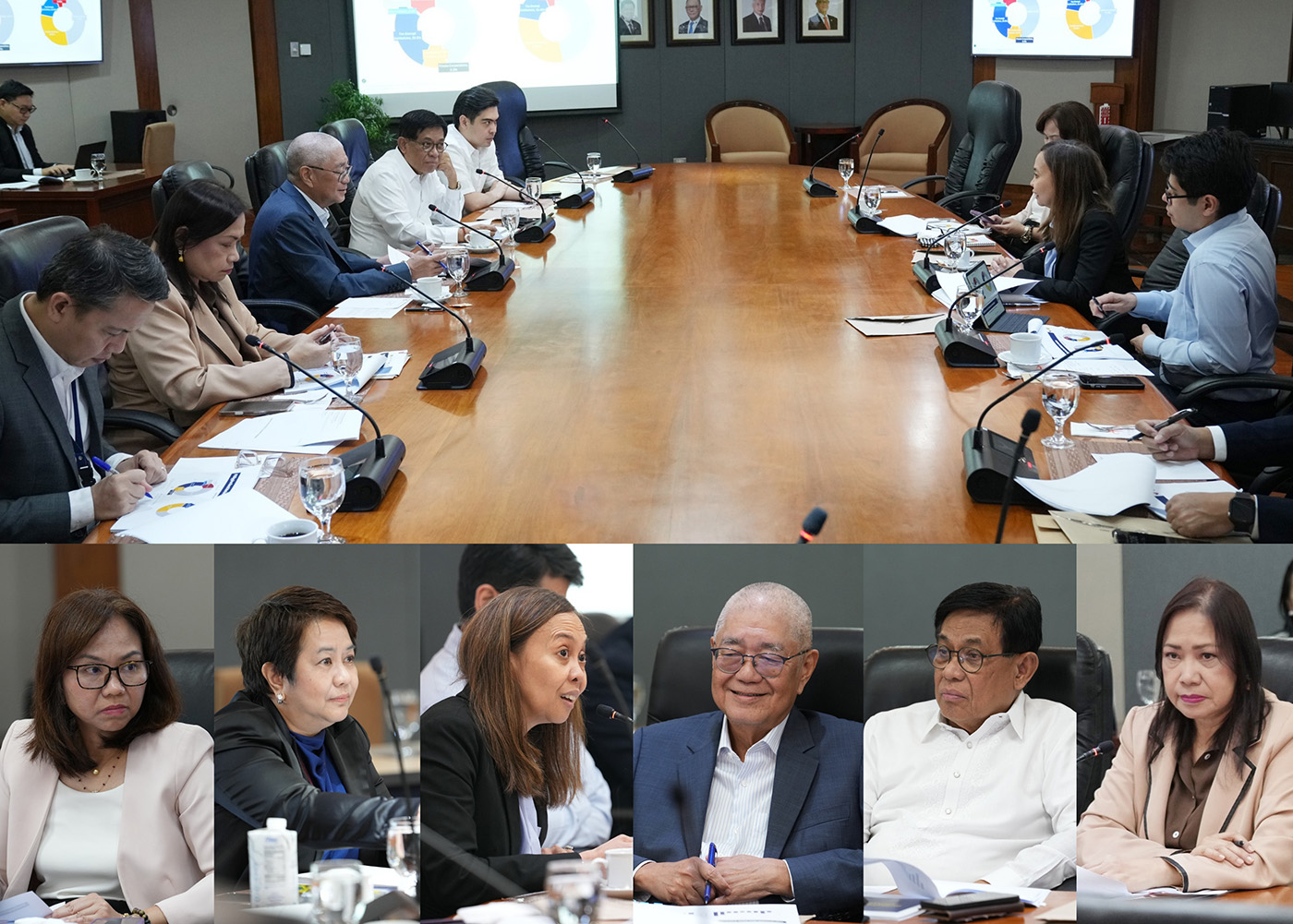The Financial Stability Coordination Council (FSCC) is stepping up its oversight of non-bank financial institutions (NBFIs), unveiling plans for an enhanced monitoring framework aimed at safeguarding Philippine financial stability and protecting the broader economy from emerging risks.
The move comes as NBFIs — which include investment houses, pawnshops, insurance firms, money service businesses, financing companies, and pre-need companies — play a growing role in the country’s financial landscape.
While not banks, these entities are increasingly interconnected with traditional financial institutions, amplifying both opportunities and vulnerabilities in the system.
A proactive approach to systemic risk

BSP Governor Remolona (3rd from left) together with members of the FSCC during their 42nd meeting at the BSP head office
The FSCC, an interagency body tasked with monitoring and addressing systemic financial risks, said the framework would strengthen coordination among regulators while aligning the NBFI regulation Philippines with global best practices.
“With the FSCC’s holistic and nuanced understanding of market conditions, we can better anticipate risks and respond more decisively,” said BSP Governor Eli M. Remolona, Jr., who chairs the council.
Remolona emphasized that the initiative is not meant to duplicate the Bangko Sentral ng Pilipinas (BSP)‘s existing supervision of banks. Instead, it will complement those efforts by focusing on non-bank players whose growing influence could have ripple effects across the Philippine economy.
The decision to pursue this monitoring framework was finalized during the council’s 42nd meeting at the BSP headquarters on August 20, 2025.
Who’s at the table

Photo shows, from left: BSP Deputy Governor Lyn I. Javier, BSP Assistant Governor Veronica B. Bayangos, Treasurer of the Philippines Sharon P. Almanza, BSP Governor and FSCC Chairman Eli M. Remolona, Jr., SEC Chairperson and Chief Executive Officer Atty. Francisco Ed. Lim, and PDIC Senior Vice President Sandra A. Diaz.
The FSCC brings together five key agencies: the BSP, the Department of Finance, the Insurance Commission, the Philippine Deposit Insurance Corporation, and the Securities and Exchange Commission. Together, these institutions coordinate to identify vulnerabilities that could threaten financial stability in the Philippines.
Council members say that while the Philippine financial system remains in a “position of strength,” rising interconnectedness between banks and non-bank players calls for a sharper lens.
For example, pawnshops and money service businesses provide critical liquidity at the grassroots level, while insurance and pre-need companies manage long-term household savings. Shocks in any of these segments could spill over and affect the larger economy.
Data-driven oversight

Alongside the proposed framework, the FSCC also launched a curated database 1 that allows regulators to share information, data, and risk metrics more efficiently. The online platform is designed to support collective supervision and strengthen the council’s capacity to respond quickly to potential threats.
Officials say the database will serve as an early warning tool, offering insights on market trends and exposures across both banks and NBFIs. By centralizing data, regulators expect to avoid blind spots and enhance their ability to craft timely, coordinated responses that protect Philippine financial stability.
Why NBFIs matter

Globally, non-bank financial institutions have become increasingly significant players, often filling gaps left by traditional banking services. In the Philippines, they serve millions of Filipinos, from households pawning jewelry for short-term cash to businesses tapping financing companies for credit.
But their diversity and rapid growth also pose regulatory challenges. Without proper oversight, risks can accumulate unnoticed — as seen during past financial crises in other countries, where stress in non-bank entities spilled over into the mainstream financial system.
The FSCC’s new initiative reflects lessons learned from those experiences. By mapping out how NBFIs interact with the rest of the financial system, the council hopes to prevent small disruptions from snowballing into larger crises that could threaten the Philippine economy.
Looking ahead
For now, the Philippine financial system is described as resilient, supported by strong capital and liquidity buffers among banks. But regulators are wary of complacency.
“Financial stability requires vigilance,” the FSCC noted in a statement, stressing that proactive measures today will help shield the economy from shocks tomorrow.
The enhanced monitoring framework and curated database are expected to roll out in stages, with details on implementation to be released in the coming months.
As global markets continue to evolve, Philippine regulators are making it clear: safeguarding Philippine financial stability is no longer just about watching banks — it’s about strengthening NBFI regulation Philippines and keeping an eye on the entire financial ecosystem.
—
[1] A curated database is any kind of structured repository, such as traditional database or XTML file, that is created and updated with a great deal of human effort. Source: Curated Databases | SpringerLink








